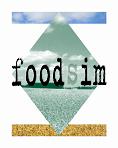
Conference Workshops
The conference organization is open to suggestions on possible workshops featuring software packages, new hardware or methods used in food simulation.
We would like to introduce new ideas for organizing this conference. We would like to facilitate the discussions about our research and our new projects as well as to discuss about a third possible COST action proposal.
We propose you to chair a special session (3 hours) about a specific theme you would like to share with other colleagues. If you are interested, please let us know as soon as possible the name of your proposal sessions. We also suggest you to organise this session, it means you will have to evaluate the papers and to chair the session. The main objective is to give the maximum of time to discuss together about this topics and to discuss of eventual common future projects. Therefore, the time given for oral presentations has to be short (posters and full papers in the proceedings) for example 1,5 hours for almost 5 papers and 1,5 hours for discussions.
If you want to propose a nutrition oriented simulation workshop please contact; philippe.geril@eurosis.org
Energy efficiency improvement
This session will cover the following topics:
- energy efficiency methodologies and tools applied in food industry
- tools dedicated to energy and exergy evaluation
- emerging technologies for improvement of energy efficiency
- multi-energy processes
- optimisation and control of processes based on energy and exergy considerations
 Submit your paper/abstract proposal for the energy efficiency track here
Submit your paper/abstract proposal for the energy efficiency track here
Analysis of evolutive food products
The knowledge of simultaneous heat and mass transfer during food processing, integrated with biological and biochemical notations, is paramount to improve product safety and quality. Simulated bio-indicators in existing or new processes can lead to significant improvement of nutritional and organoleptic aspects.
This session will cover the following topics:
- prediction of harmful molecules production during food processing
- analysis of vitamins/enzymes degradation and bacteria survival in batch/continuous fluid heating systems
- evolution of foods during emerging technology processing (Ultrasound, Radiofrequencies, Pulsed electric fields, Ohmic heating)
- optimisation of packaging and storage configurations, to ensure the maximum product shelf-life and commercial requirements
- optimization of heat exchangers design parameters for enzyme/proteine sensible fluids treatment
 Submit your paper/abstract proposal for the energy efficiency track here
Submit your paper/abstract proposal for the energy efficiency track here
Advanced Process Control (APC) in the food industry
APC allows to master the inherent process dynamics better and, as a consequence, to improve the performance of the production and it has proven that, where a DCS system is already installed - which today is true for most plants - it is the most time and cost effective means to increase the profitability of a plant.
Yet, APC is still very much underutilized, especially in the food industry, one reason being that many are not fully aware of its benefits and the mechanisms that lead to them. Furthermore, it is also still perceived as very complex, expensive and thus suitable only for huge oil refineries.
It is important to rectify this picture and to promote its utilization, not for the sake of technology, but for the benefit of
the manufacturers because the pressures on them are ever increasing may that be with respect to product qualities and prices or to emission, cost of energy and utilities and in response to these challenges they truly would miss a key opportunity to address them in a timely and affordable way by not making full and well organized use of APC.
 Submit your paper/abstract proposal for the advanced process control track here
Submit your paper/abstract proposal for the advanced process control track here
Sustainable Food Production
Food production is one of the largest contributor to environmental impact. Hence it is of utmost importance to produce it as environmental-friendly as possible, while still maintaining good business.
This session will try to emphasis on how we can achieve more sustainable food production by utilizing tools such as simulation and lifecycle assessment for analysis and desicionmaking.
 Submit your paper/abstract proposal for the sustainable food production track here
Submit your paper/abstract proposal for the sustainable food production track here











